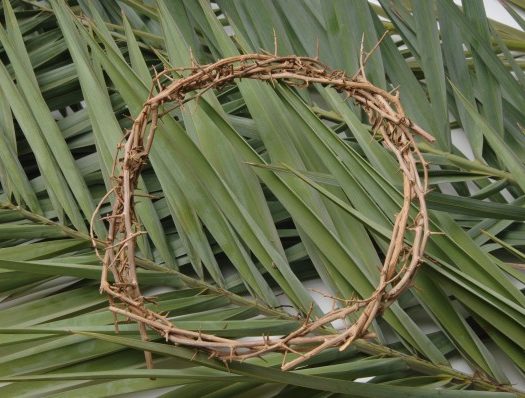 I. Brief Historical Overview of Ash Wednesday
I. Brief Historical Overview of Ash Wednesday
The use of ashes in the church left only a few records in the first millennium of Church history. The first Ash Wednesday that provides for sprinkling ashes in community rather than the individual acknowledgment of repentance occurred somewhere around 960.
Near the end of the 11th century, Pope Urban II of the Roman Catholic Church called for the general use of ashes on what we now know as Ash Wednesday. It was not until the 12th century that the practice of ashes being created by burning palm branches from the previous Palm Sunday was implemented.
The Lenten Season
The season of Lent serves as our reminder of the redemptive and salvific acts of Jesus Christ. The Lenten season commences each year 40 days before Easter (excluding Sundays) with Ash Wednesday (also known as the Day of Ashes). The day serves as a reminder for Christians of our sinful nature and the reality of death while simultaneously asking us to recall the gracious nature of God.
On Ash Wednesday we participate in a worship service in which we include the ritual practice of the imposition of ashes. In some cases the ashes are a result of the burning of the palms from the previous year’s Palm Sunday. The ritual practice of the imposition of ashes is paired with a reading of a portion of Genesis 3:14-19 in some churches. This reading again draws our attention to the weakness and failings of humanity as demonstrated by God’s assertion, “from [the ground] you were taken. For dust you are, and to dust you shall return” (Genesis 3:19b).
Why ashes? The ashes are symbolic of our mortality and are placed upon the foreheads of those in worship in the sign of the Cross to remind us of the power of Jesus’ sacrifice. In the Bible we are pointed to moments in which members of the community in ancient Israel expressed mourning and sorrow with ashes. In Job (2:8) he sits on ashes to express his mourning the death of his children. In Jeremiah 6:26 the prophet proclaims, “O my poor people, put on sackcloth, and roll in ashes; make mournings as for an only child, most bitter lamentations.” Ashes in ancient Israel were an outward sign of mourning and repentance. In this day of penitence we begin again a journey of repentance before we acknowledge the glory of the Resurrection. As a result, before we celebrate Christ’s glory we mourn the frailty of human existence.
II. Songs That Speak to the Moment
A. Hymns
“Walk Together Children” is a Negro spiritual arranged by Evelyn Simpson-Curenton. This song could be used during the invocation, the altar call, or before the pastoral prayer. During the Lenten season it is a call for unity and endurance; both of these qualities are lifted in today’s texts.
Walk Together Children
Walk together children
Don’t you get weary
Walk together children
Don’t you get weary
Oh, talk together children
Don’t you get weary
There’s a great camp meeting in the promised land
Sing together children
Don’t you get weary
Sing together children
Don’t you get weary
Oh, shout together children
Don’t you get weary
There’s a great camp meeting in the promised land.1
“Am I a Soldier Of the Cross” by Isaac Watts is a metered hymn also arranged by Evelyn Simpson-Curenton. It is a song about continuing the cause for Christ as a result of the grace that we have been given because of the sacrifices of Christ. This song could be played softly during the imposition of ashes.
Am I a Soldier of the Cross
Am I a soldier of the cross,
A follower of the Lamb,
And shall I fear to own His cause,
Or blush to speak His Name?
Must I be carried to the skies
On flowery beds of ease,
While others fought to win the prize,
And sailed through bloody seas?
Are there no foes for me to face?
Must I not stem the flood?
Is this vile world a friend to grace,
To help me on to God?
Sure I must fight if I would reign;
Increase my courage, Lord.
I’ll bear the toil, endure the pain,
Supported by Thy Word.
Thy saints in all this glorious war
Shall conquer, though they die;
They see the triumph from afar,
By faith’s discerning eye.
When that illustrious day shall rise,
And all Thy armies shine
In robes of victory through the skies,
The glory shall be Thine.2
B. Contemporary Gospel Songs
“Can’t Give Up Now” by Mary Mary can be used anywhere in the worship service on Ash Wednesday. It addresses the need to persevere in life based on our relationship with Christ. It too reinforces today’s text.
Can’t Give Up Now
There will be mountains that I will have to climb
And there will be battles that I will have to fight
But victory or defeat, it’s up to me to decide
But how can I expect to win If I never try.
I just can’t give up now
I’ve come too far from where I started from
Nobody told me the road would be easy
and I don’t believe he brought me this far to leave me
Never said there wouldn’t be trials
Never said I wouldn’t fall
Never said that everything would go the way I want it to go
But when my back is against the wall
And i feel all hope is gone,
I’ll just lift my head up to the sky
And say help me to be strong
I just can’t give up now
I’ve come too far from where I started from
Nobody told me the road would be easy
and I don’t believe he brought me this far to leave me
[Hook:]
No you didn’t bring me out here to leave me lonely
Even when I can’t see clearly
I know that you are with me (so I can’t)
I just can’t give up now
I’ve come too far from where I started from
Nobody told me the road would be easy
and I don’t believe he brought me this far to leave me.3
“I’ve Been Changed” by Karen Clark-Sheard can be used as either the sermonic selection or the invitational song. It deals with how we react to situations differently based on the change that occurs in us based upon salvation.
I’ve Been Changed
Yeah…well (I wonder is there anybody out there who’s been changed).
(1st Verse)
Any other day I wouldn’t have dealt with this situation this way. There were a lot of things I wanted to say but I thought about what would have happened if I let you get the best of me. No way. (No way) And now I can truly say.
Chorus:
I was a bird on the ground using my legs to get around. I was a piano out of tune but I’ve been turned around. Tell you how I know. Places I used to go I don’t even go no more. ‘Cause I can fly now. And the song I play lets me know I’ve been changed.
(2nd Verse)
Never mind what you’ve heard. I’m not the same. Somewhere, somehow, someway I reversed the way I do things. No it ain’t worth all the tug of war with you to prove I’m stronger. I no longer stay to play and lose. Now I am proud to say it’s true.
(Chorus)
Make no mistake about it. Anyone could change. But it takes a strong mind to say that doing the right thing is okay. And now that I’ve decided to give up these ways there’s no turning back now. Now that I’ve found out I can overcome these things. Oh…
(Chorus)
III. A Prayer of Confession
Everlasting God we come before you humbly acknowledging our sinful nature;
We confess that we fall short of the calling of Jesus Christ each day.
We fail to love you in the failure to love and care for your people.
We ask for the strength and boldness to continue the mission of Jesus in the world.
We pray for the fortitude to set aside our own agendas and comfort in an effort to participate in the kingdom of heaven.
Gracious God, humble us, have mercy on us, and allow the Holy Spirit to abide with us, embolden us, instruct us, and ever bring to our remembrance the life and death of your Son.
Allow us to follow Jesus Christ our Lord and Savior in all that we do.
Amen.
Continue Reading…
Original Source: The African American Lectionary




No Comments